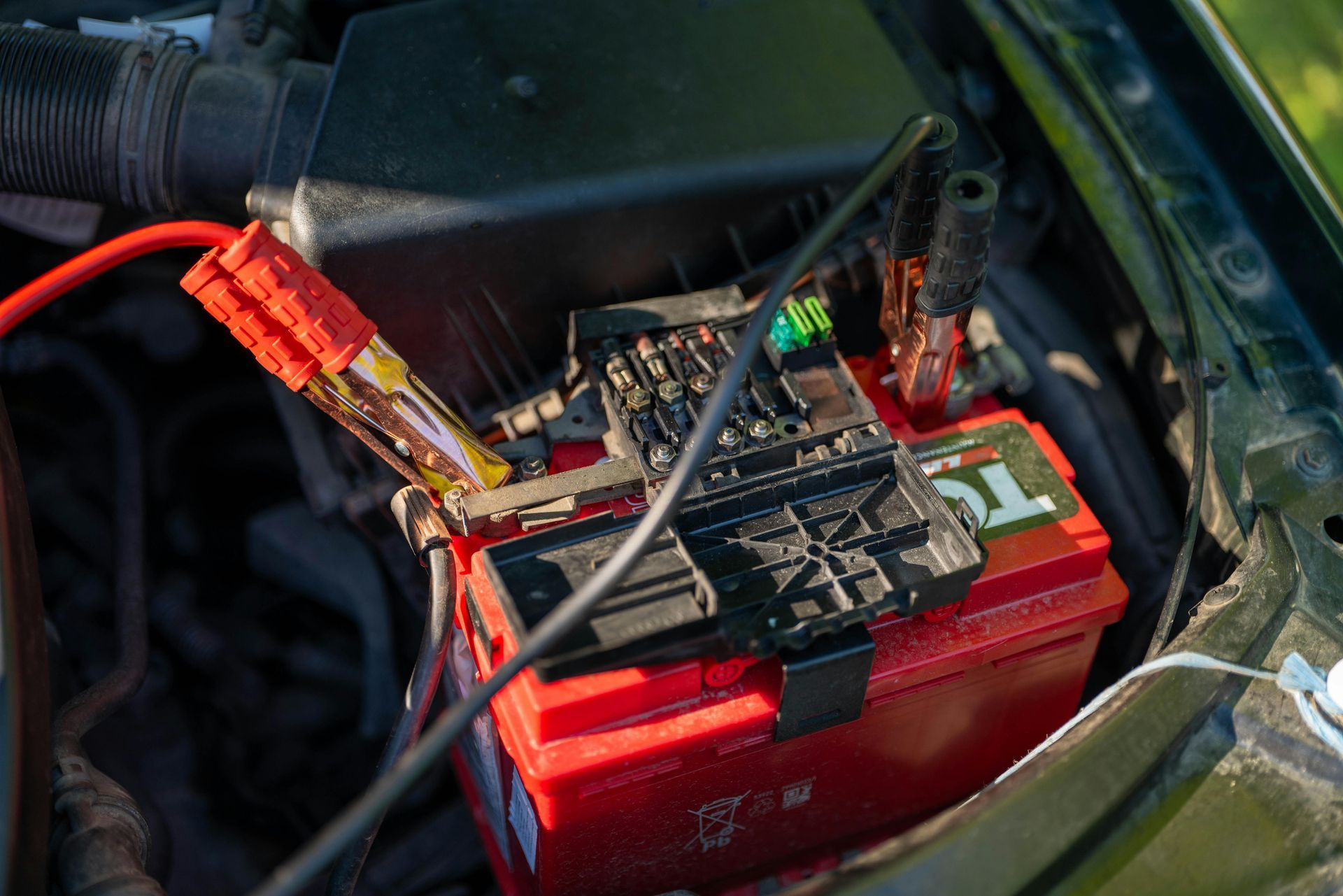EV vs Hybrid: How They Compare on Emissions, Power, & Repair Costs
Auto Shops Located in: Chapel Hill, Durham, Taleigh, Apex, and Cary North Carolina

If you want to reduce your impact on the environment while driving, electric vehicles (EVs) and hybrids are great options. Both produce less emissions than standard vehicles that only use gas, but they do have differences that affect each option’s emissions, power, repair costs, and purchase price. As you try to decide whether an EV or hybrid is right for you, take a moment to review how their environmental impact, cost, and performance compare.
What Is the Difference Between Hybrids and EVs?
EVs do not have an internal combustion engine (ICE) and rely on high-capacity batteries to power the vehicle. In contrast, all hybrids have an ICE alongside the ability to run on electricity.
Standard hybrids are powered by an ICE and at least one electric motor. The electric motor uses energy stored in a small battery pack that’s recharged by the hybrid’s regenerative brakes. Typically, the electric motor can power the vehicle at lower speeds (up to around 30mph) while the ICE takes over at higher speeds.
You can also find plug-in hybrids that use an ICE, an electric motor, and a larger battery to power them. These hybrids need to be charged, unlike standard hybrids, but they have a longer range for electric-only driving (usually between 20 and 40 miles).
Breaking Down How Hybrids and EVs Compare
Due to their different designs, hybrids and EVs each have pros and cons regarding costs, emissions, and power. Before you purchase an EV or a hybrid, take a moment to see how they compare below:
1. EV vs.Hybrid Cost
Typically, hybrid vehicles are less expensive compared to EVs. For example, hybrids tend to cost between $25,000 and $35,000, while EVs often start in the mid $30,000s, with some EVs, like Teslas, starting at more than $60,000. The primary reason for the higher costs of EVs is due to the price of the more powerful batteries EVs require.
While the cost of EVs tends to be higher than hybrids, EVs do tend to have more incentives and rebates available to them. With the federal EV tax credit, EV owners can save up to $7,500 when purchasing a new EV, and many states offer rebates for new EV purchases. Additionally, you may be able to find some rebates for plug-in hybrid vehicles, but for most regular hybrids, you won’t be able to receive any rebates.
2. EV vs. Hybrid Emissions
Since EVs don’t have an internal combustion engine like hybrids, they don’t produce any tailpipe emissions, but the electricity used to charge them does generate emissions of carbon dioxide (CO2). Despite the emissions from charging, they still produce less emissions than hybrids or standard ICE vehicles.
For example, a 2019 study from MIT found that ICE vehicles produce 350 grams of CO2 per mile, while plug-in hybrids and standard hybrids produce around 260 grams of CO2 per mile. EVs produce even less emissions, with the study finding they generate 200 grams of CO2 per mile.
A more recent report from the U.S. Department of Energy backs up these findings that EVs produce fewer emissions. Based on the Department of Energy’s estimates for average annual emissions, EVs produce 2,727 pounds of CO2, plug-in hybrids produce 4,763 pounds of CO2, standard hybrids produce 6,898 pounds of CO2, and gasoline vehicles produce 12,594 pounds of CO2. So, even when taking charging into account, EVs should produce fewer emissions than hybrids.
3. EV vs. Hybrid Carbon Footprint
While EVs produce less emissions, some auto manufacturers believe they can reduce more carbon by manufacturing hybrids instead of EVs. The reason for this is what Toyota calls the 1:6:90 Rule, which argues that the raw materials needed to create an EV could be used to manufacture 90 hybrid vehicles or six plug-in hybrids. Toyota also believes that the overall carbon reduction of 90 hybrid vehicles would be 37 times greater than that of a single EV.
Though hybrids don’t require as many materials and have a lower manufacturing carbon footprint, a single EV still has a lower overall carbon footprint than a single hybrid. EVs that draw power from clean energy sources (e.g., hydropower, wind, solar) can also lower their carbon footprint. Keep in mind that if you’re receiving power from a coal-based power plant, your EV’s carbon emissions will go up significantly, as coal generates a lot of CO2.
4. EV vs. Hybrid Repair Costs
The difference between EVs and hybrids in terms of repair costs isn’t clear and can be largely situational. For instance, EVs tend to need less maintenance and repairs since they have fewer moving parts and don’t have an ICE. However, if one of their specialized parts breaks down, the cost of the parts and labor can be more expensive than it would be for a hybrid or standard vehicle.
Hybrids tend to need more maintenance and repairs than EVs, as they contain an ICE engine. Additionally, the electrical system of a hybrid will also need repairs and maintenance, meaning hybrids are more likely to need service more often than EVs. However, since parts are less specialized than EVs, repair costs can be lower.
5. EV vs. Hybrid Power
If you’re only considering the electric range of EVs and hybrids, EVs are the clear winner. While hybrids typically only get up to about 40 miles for electric-only driving, most EVs offer an electric range between 110 to 300 miles. That being said, hybrids tend to offer greater total range when you combine their ICE and electric range. For example, some hybrids have a total range close to 700 miles, making them a better choice for those who normally need to drive long distances.
Choose Chapel Hill Tire for Hybrid and EV Repair Services in the NC Triangle
If you need hybrid or EV repair services in Raleigh, Chapel Hill, Durham, or the surrounding Triangle area, turn to Chapel Hill Tire. Our team is trained to perform maintenance and repair services for hybrids and EVs (We can even act as your Tesla service center!). We also offer several coupons you can take advantage of to save on many of our services.
Learn more about our EV and hybrid repair services today. If you need hybrid and EV maintenance or repairs, please make an appointment at one of our convenient locations in the Triangle area.















